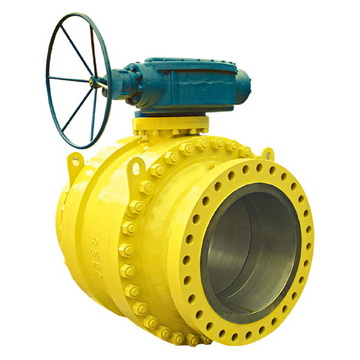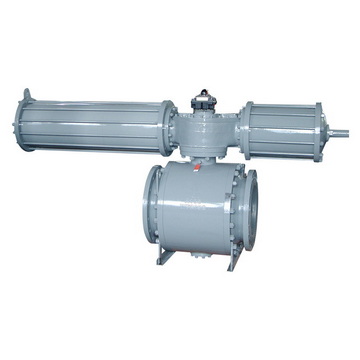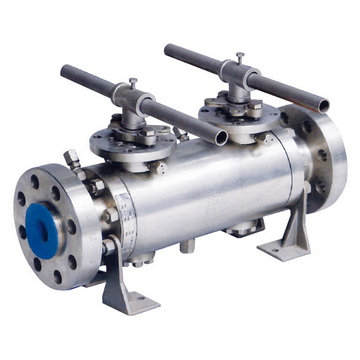Hot tags: Top Carbon Steel Ball Valve Manufacturers America, Best Carbon Steel Valve Suppliers in America, American Carbon Steel Valve Companies, Industrial Carbon Steel Ball Valve Manufacturers USA, Carbon Steel Valve Exporters America, High-Performance Carbon Steel Valves USA, Carbon Steel Ball Valve OEM Suppliers America, Carbon Steel Valve Distributors USA, Precision Carbon Steel Ball Valve Manufacturers America, Leading Valve Companies in North America
Top Carbon Steel Ball Valve Manufacturers and Suppliers in America
2025-07-23
back
Content Menu
● Introduction to Carbon Steel Ball Valves
● Design and Construction Features of Carbon Steel Ball Valves
● Leading American Carbon Steel Ball Valve Manufacturers
● Chinese Carbon Steel Ball Valve Manufacturers with American Presence
>> Water Treatment and Desalination
>> Chemical Processing and Petrochemical Industry
● Quality Control and Industry Standards
● Innovations and Trends in Carbon Steel Ball Valves
● Supply Chain and After-Sales Support
● FAQ
>> 1. What are the key advantages of carbon steel ball valves over other materials?
>> 2. Which industries most commonly use carbon steel ball valves?
>> 3. What certifications should I look for when choosing a carbon steel ball valve manufacturer?
>> 4. Can American manufacturers meet custom ball valve specifications?
>> 5. How do Chinese carbon steel ball valve manufacturers compete in the American market?
Carbon steel ball valves are essential components widely used in industries such as oil and gas, petrochemical, water treatment, and offshore drilling platforms. These valves control the flow of liquids and gases with high efficiency and reliability under varying temperature and pressure conditions. The United States hosts several leading manufacturers and suppliers who provide high-quality carbon steel ball valves tailored to diverse industrial applications. This article explores the top carbon steel ball valve manufacturers and suppliers in America, highlighting their products, technologies, and industry applications, along with a comparison to global manufacturers, including leading Chinese factories specializing in OEM ball valve services.

Introduction to Carbon Steel Ball Valves
Carbon steel ball valves are valve devices featuring a spherical closure element (a ball) that rotates 90 degrees to open or close the flow path. The material, carbon steel, offers robust strength and excellent machinability, making it ideal for manufacturing valves in demanding industries. Though carbon steel has lower corrosion resistance than stainless steel, it is favored for its superior thermal conductivity and affordability without compromising strength.
Common types of carbon steel ball valves include:
- Floating ball valves
- Trunnion (ear-axis) ball valves
- Top-entry ball valves
These valves are used extensively in upstream, midstream, and downstream sectors of the oil and gas industry, desalination plants, offshore drilling platforms, and chemical processing. Their reliability in extreme conditions such as high pressure, temperature, and corrosive environments make them an industry standard where maintaining system integrity is paramount.
Design and Construction Features of Carbon Steel Ball Valves
Carbon steel ball valves are engineered for precision and longevity. The floating ball type is held in place by two seats and free to move slightly in the flow direction. This floating design provides excellent sealing and is usually employed in smaller diameter valves with moderate pressure ratings. In contrast, trunnion ball valves incorporate additional support on the ball via shaft bearings or trunnions, providing mechanical anchoring to handle higher pressures and larger valve sizes.
Advanced manufacturing processes ensure the balls and seats achieve precise machining tolerances, which guarantees tight shutoff and minimizes leakage. The seats are often made from resilient materials such as PTFE or reinforced with Viton or other elastomers that maintain sealing under various chemical exposures. Some manufacturers also offer metal seats for high-temperature or abrasive fluid conditions.
Top-entry ball valves present another variation where the valve is accessed from the top, allowing simplified maintenance and refurbishment without removing the valve body from pipelines. This feature is especially valued in offshore platforms and heavy industrial plants where downtime costs are significant.
Leading American Carbon Steel Ball Valve Manufacturers
SSP Fittings Corp.
SSP Fittings Corp. has a rich history dating back to 1926 and has grown into a global leader for precision ball valve components. Their comprehensive offering includes floating and trunnion ball valves in carbon steel, designed to stringent aerospace and industrial standards. SSP valves feature live-loaded stem seals to ensure leak-proof performance and fluorocarbon O-rings that resist chemical degradation and temperature extremes.
Another highlight is SSP's strict quality control system which incorporates dimensional inspections, pressure testing, and materials traceability. Customers benefit from both standard catalog products and customized solutions tailored to specific industrial needs. Their valves are widely used in sectors including chemical processing, oil & gas transportation, and shipbuilding, where safety and longevity are critical.
Red-White Valve Corp.
Specializing in miniature ball valves since 1971, Red-White Valve Corp. stands out for crafting reliable valves from brass, carbon steel, stainless steel, and PVC. Though their focus is on smaller sizes for plumbing and HVAC, their carbon steel variants boast features such as blow-out proof stems, adjustable packing, and PTFE seats ensuring tight shutoff and extended service life.
Red-White valves are renowned for ease of installation and maintenance, making them the go-to choice for systems requiring compact, dependable flow control in confined spaces. Their commitment to quality is reflected in strict adherence to ANSI and ASME standards and use of premium raw materials.
NDL Industries, Inc.
NDL Industries produces rugged carbon steel ball valves primarily for refrigeration and HVAC applications, where controlling fluid flow and pressure under demanding conditions is vital. These valves feature corrosion-resistant coatings, standardized port sizes, and PTFE seals that maintain integrity across frequent cycles of temperature and pressure variation.
NDL Industries' products comply with ASME and ANSI requirements, ensuring compatibility and ease of integration into existing systems. The company offers customization options to tailor valves to unique system parameters such as specific pressure ratings or media types.
Modern Fluid Power, Inc.
Modern Fluid Power caters to industrial customers needing pneumatic and electric actuated carbon steel ball valves with a variety of connection types including flanged, threaded, and sanitary ends. Their extensive size range from 1/4 inch to 12 inches enables them to serve applications from delicate instrumentation to large pipeline shutdown systems.
The company emphasizes fast order turnaround and after-sales support, often incorporating their valves into complex automated flow control assemblies used in air, vacuum, gas, refrigeration, and cryogenic environments.
Chinese Carbon Steel Ball Valve Manufacturers with American Presence
The China-based manufacturer RKSfluid has emerged as a global contender in carbon steel ball valve production with special OEM arrangements for the United States market. RKSfluid's product portfolio encompasses floating ball valves, trunnion ball valves, metal-seated designs, as well as threaded and welded connection types. Materials typically include ASTM A105 and WCB carbon steel for body castings, and stainless steel grades CF8 and CF8M for components requiring corrosion resistance.
RKSfluid products abide by rigorous international standards such as API 6D for pipeline valves, ASME B16.34 for flanged ball valve pressure ratings, ANSI designations, and CE certification for European compliance. The company's strategic US-based R&D center in Houston enables localized engineering support, design customization, and accelerated logistics.
As an OEM supplier, RKSfluid partners with overseas brand owners, distributors, and wholesalers to provide cost-effective solutions without sacrificing quality, backed by thorough testing protocols including hydrostatic pressure tests, seat leakage assessments, and non-destructive material inspections.

Typical Application Areas
Oil and Gas Industry
Carbon steel ball valves are indispensable in oil and gas pipelines, refinery operations, and gas processing plants. Their robust construction allows them to withstand upstream extraction pressure surges and downstream refining temperature variations. Floating ball valves are prevalent in smaller pipeline sections, while trunnion ball valves are preferred for high-pressure transmission lines.
They also perform vital functions on offshore drilling platforms, where space is confined but operating conditions are harsh due to saltwater exposure and extreme weather. Special protective coatings and metal seat variants assure longevity under such conditions.
Water Treatment and Desalination
Water treatment plants and desalination facilities depend on carbon steel ball valves to regulate brine and seawater flows. Despite the inherently corrosive nature of seawater, carbon steel valves coated with epoxy or other inhibitors provide economical and dependable service in saltwater handling, particularly in large-diameter pipeline segments where stainless steel valves may be cost-prohibitive.
Chemical Processing and Petrochemical Industry
Valves in chemical plants must cope with aggressive fluids, high pressure, and thermal cycling. Carbon steel valves with PTFE or metal seats resist degradation from solvents, acids, and other chemicals. Customized valve trims are often employed to enhance resistance for specific media.
Industrial Manufacturing
Across general manufacturing, carbon steel ball valves provide critical shutoff and control for cooling systems, compressed air, and steam lines. Their minimal pressure drop, ease of automation, and low maintenance requirements allow smooth operations in facilities ranging from automotive to food processing.
Quality Control and Industry Standards
Leading American manufacturers maintain compliance with stringent industry certifications to ensure valve safety, reliability, and performance. API 6D specifies requirements for pipeline valves, including pressure testing and performance criteria. ASME B16.34 governs dimensions, material requirements, and flange ratings. ISO 9001 certification ensures consistent manufacturing quality management systems.
Testing protocols include:
- Hydrostatic pressure tests at various pressures to validate body and trim strength.
- Gas leakage tests to verify seat sealing quality.
- Non-destructive examinations (NDE) such as radiography and ultrasonic testing to detect internal casting defects.
- Material verification through chemical analysis and mechanical property testing.
These tests and certifications collectively provide system engineers and end users with the certainty that the carbon steel ball valves will perform reliably under demanding conditions.
Innovations and Trends in Carbon Steel Ball Valves
With increasing automation and digitization in industrial processes, many carbon steel ball valves now incorporate pneumatic or electric actuators for remote operation and precise flow control. Smart valve technologies also embed sensors that monitor valve position, pressure differential, and temperature, enabling predictive maintenance and reduced downtime.
Manufacturers are advancing metal seat designs and incorporating advanced surface treatments to extend service life in abrasive or high-temperature conditions, expanding the operational envelope of carbon steel ball valves. Additionally, environmental regulations push suppliers to develop valves with enhanced sealing and reduced fugitive emissions.
Supply Chain and After-Sales Support
Top manufacturers in America and international OEM suppliers provide comprehensive supply chain services including just-in-time delivery, inventory management, and customized packaging solutions. Many offer technical training, installation guidance, and 24/7 customer service to ensure optimum valve performance throughout their lifecycle.
Globalization and local manufacturing investments, such as RKSfluid's US R&D and warehousing center, continue to improve lead times and client responsiveness in the American market, combining the strengths of international technology and local market understanding.
Conclusion
The American market for carbon steel ball valves is served by a robust cohort of manufacturers and suppliers renowned for their precision, quality, and customization capabilities. Companies like SSP Fittings, Red-White Valve, NDL Industries, and Modern Fluid Power meet a wide spectrum of industrial demands—ranging from miniature valves for HVAC applications to large, trunnion-supported assemblies for high-pressure oil and gas pipelines.
Simultaneously, global players such as Chinese manufacturer RKSfluid have advanced into the American market by offering certified high-quality OEM options supplemented with local engineering and support. This healthy competition drives innovation, expands choice, and ensures that end users can source reliable carbon steel ball valves that precisely suit their needs, whether for upstream oil extraction, offshore drilling, chemical processing, or municipal water treatment.
As industries evolve and digital integration deepens, carbon steel ball valves will continue to adapt, offering ever-greater performance, operational reliability, and environmental compliance for years to come.

FAQ
1. What are the key advantages of carbon steel ball valves over other materials?
Carbon steel ball valves offer superior strength, excellent thermal conductivity, and cost efficiency. They are robust for heavy-duty industrial applications and tolerate pressure and temperature fluctuations well, although they have lower corrosion resistance compared to stainless steel.
2. Which industries most commonly use carbon steel ball valves?
Primary industries include oil and gas (all sectors), petrochemical, water desalination, offshore drilling, chemical manufacturing, and general industrial manufacturing.
3. What certifications should I look for when choosing a carbon steel ball valve manufacturer?
Important certifications include API 6D, ASME B16.34, ISO 9001, CE marking, ANSI compliance, and for North American markets, CSA approval.
4. Can American manufacturers meet custom ball valve specifications?
Yes, many American companies provide fully customizable manufacturing, allowing selection of materials, sizes, pressure classes, and additional features to match application requirements precisely.
5. How do Chinese carbon steel ball valve manufacturers compete in the American market?
Chinese manufacturers compete by offering OEM services with competitive pricing, compliance with international quality and certification standards, and establishing US-based R&D and support centers to ensure localization and timely delivery.